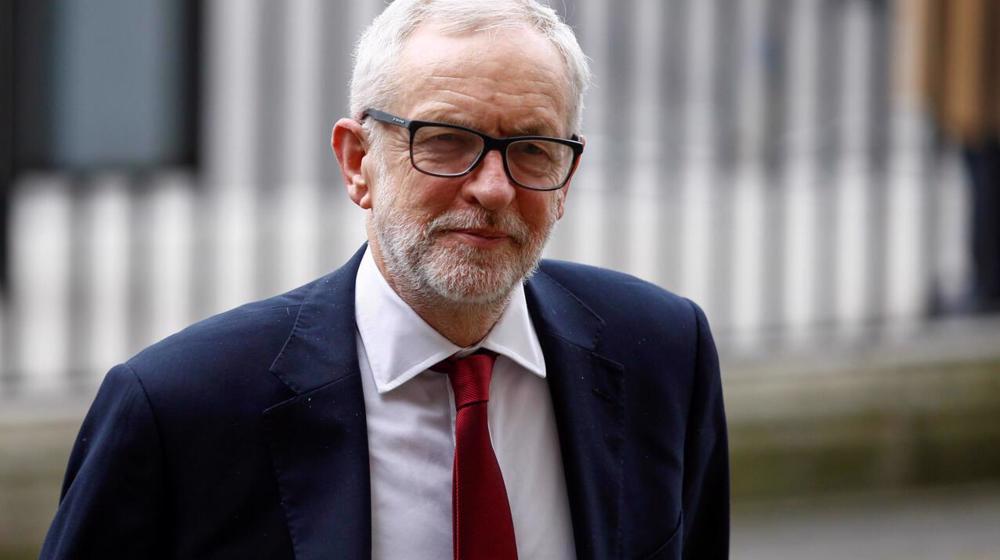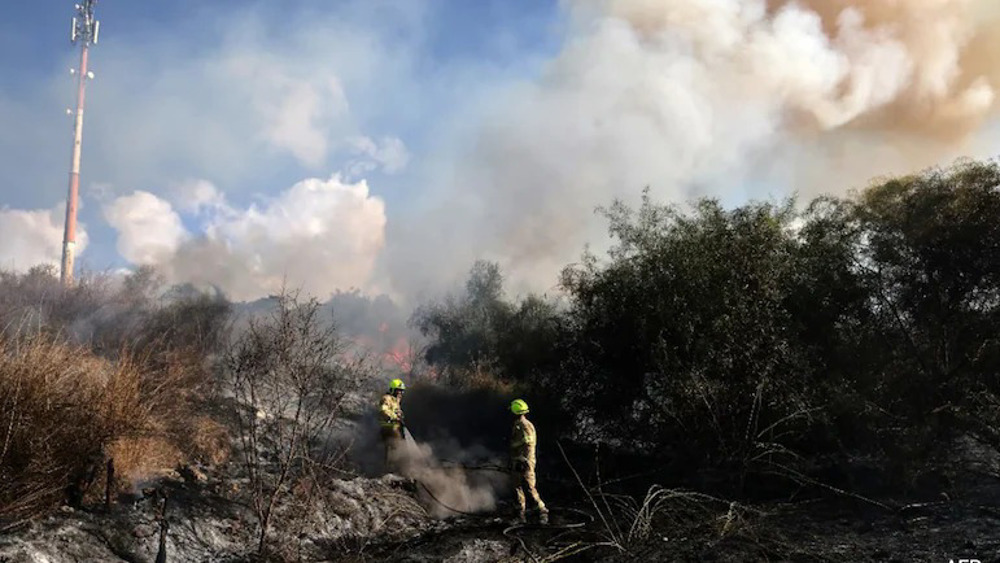UK government rapped for marking Saudi king’s death
The British government has come under fire for flying the Union Flag at half-mast to mark the death of Saudi King Abdullah bin Abdulaziz Al Saud, whose rule was sharply criticized over a poor human rights record.
The Union Flags at Iconic buildings including Downing Street, Whitehall departments, Westminister abbey, and Buckingham Palace were lowered to half-mast following the announcement of the death of the 90-year-old Saudi monarch early on Friday.
Lawmakers and other high profile figures expressed anger at the government’s move to honor the king in such a manner.
Ruth Davidson, the leader of the Scottish Conservatives, said the decision was “a steaming pile of nonsense,” while MP Douglas Carswell said that officials had showed by lowering the flags “immoral” values far from those of the British public.
UK-based Amnesty International also voiced its opposition to the move saying it ignores the human rights abuses by the Al Saud regime.
“No one is flying flags for the scores of people Saudi Arabia executes each year after unfair trials, and we should focus on the human rights reality in Saudi Arabia not the emblems of diplomacy,” said Kate Allen, Amnesty’s UK director.
In response, British officials said flying the Union flags at half-mast was a matter of protocol and the decision was made after a formal request by the Buckingham Palace.
The criticism comes as the UK along with other Western governments have been accused of turning a blind eye to Riyadh’s rights violations in return for lucrative arms sales and the continuing flow of Saudi oil.
Saudi Arabia is the recipient of more British weapons than any other country. It is the biggest foreign customer, after the US, of BAE Systems, the UK’s largest arms company and biggest manufacturing employer.
Last August, Campaign Against Arms Trade (CAAT) said under Cameron’s leadership export licenses worth £3.8 billion have been approved for British arms companies' sales to Saudi Arabia.
Al Saud’s human rights violations
International human rights organizations have lashed out at Saudi Arabia for failing to address the situation of human rights in the kingdom. They say Saudi Arabia has persistently implemented repressive policies that stifle freedom of expression, association and assembly.

The country has also been repeatedly criticized over its ban on woman driving. Saudi authorities have defied calls by international rights groups to lift the ban, which has been described as violations of women’s rights in the kingdom, where elections have been historically rare
In addition, Saudi Arabia has come under fire over its funding and supplying of weapons to militants groups in Syria. Last October, billionaire Saudi businessman Alwaleed bin Talal admitted that the kingdom had financially supported for the ISIL Takfiri terrorists.
Riyadh has also offered a helping hand to Bahrain’s ruling Al Khalifa regime in its brutal crackdown on peaceful protesters and political activists in the Persian Gulf state since 2011.
This is while the UK government and its Western allies have long supported both Arab kingdoms and remained tight-lipped in the face of their human rights violations.
CAH/MKA
VIDEO | Martyr Soleimani’s legacy inspires pilgrims flocking to Kerman
VIDEO | Rome sit-in decries Palestinian Authority's betrayal of Palestinian cause
VIDEO | IRGC military drills underway in western Iran to boost combat readiness
VIDEO | Scientist-turned anti-hegemonic filmmaker
Yemen slams missile into northern part of occupied territories
VIDEO | An insider's view of the country: Naqsh-e-Jahan Square
Iran Armed Forces confront all violations against the country’s soil: Ground Forces cmdr.
IRGC deploying ‘new weaponry’ during underway Ground Force drills










 This makes it easy to access the Press TV website
This makes it easy to access the Press TV website